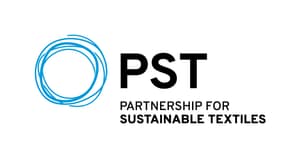The OS ID provides the vital common point of reference that allows us to combine multiple IDs across multiple MSIs in the same record to achieve interoperability.
Seamless data exchange in an ecosystem of MSIs and companies
Fair Factories Clearinghouse (FFC) works to build programs to improve supply chains, by using the collective data and resources of their multi-stakeholder initiative (MSI) and company members. One of these programs is centered around FFC being able to take in a member company’s supplier code of conduct and then flag for the company when one of their suppliers is out of compliance. To do this, FFC needs to begin by consolidating the datasets of their MSI members, like Worldly, ZDHC, SLCP and more, so that they have synced and up-to-date compliance information on factories. However, this consolidation is virtually impossible without an industry standard facility ID that runs across all of these programs and service provider datasets. Without an ID, the variations in names and addresses of facilities across these platforms leads to a vast and tangled set of duplicate facility entries.
By integrating their database with Open Supply Hub’s, FFC will be able to run all of the facilities in their database through OS Hub’s deduplication algorithm and then receive industry-standard IDs for each of them. With platforms like Worldly and ZDHC making use of the OS Hub API, they can all then work with one coordinated ID scheme to connect their datasets.
Until Open Supply Hub, factory matching across platforms has been very challenging. The OS ID provides the vital common point of reference that allows us to combine multiple IDs across multiple MSIs in the same record to achieve interoperability.
Sheetal Parikh Patel Chief Technical Officer, Fair Factories Clearinghouse
Easily facilitating joint remediation
FFC is looking to support their company members by facilitating company to company joint remediation. However, comparing supply chain data between companies to find the overlap in their supply chains has proven a great challenge, due to the lack of standardization and poor data quality in many company’s internal datasets. FFC encourages their member brands to disclose their data on Open Supply Hub, so that they can:
Easily find and search for overlaps in their supply chain data
Access universal IDs for their facilities to make it easy to identify and discuss overlapping facilities with other companies
Utilize OS Hub’s crowd-sourced approach to access higher quality names and addresses for their suppliers that may have been submitted by other stakeholders

Founded in 2004, FFC is a membership organization that specializes in building and operating on-line communities to bring about transformative change. It provides tools and services to help brands document and monitor supplier compliance and supports building private communities for other MSIs working to bring about sustainable industry change.



